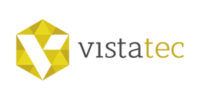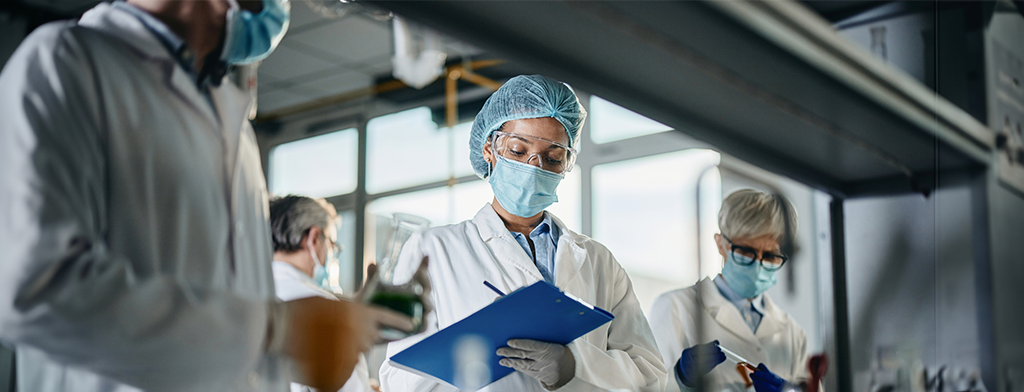Life Sciences — In Focus Podcast: Ep 03 - Michelle Lott, Lean RAQA
In this Life Sciences – In Focus podcast episode, host Karen Tkaczyk sat down with Michelle Lott, the founder and principal of Lean RAQA, to discuss the intricate world of regulatory affairs within the life sciences sector. This conversation not only shed light on Michelle’s unique journey into the field but also explored the challenges and nuances of navigating regulatory pathways in the United States and Europe.
From Forensic Toxicology to Regulatory Strategy
Michelle’s career began unexpectedly as a forensic toxicologist at the Mississippi crime laboratory. Her journey took a fascinating turn when she managed her father’s oriental rug business, honing her social skills before diving into the regulatory sphere at Baxter Healthcare. This blend of technical and social expertise set the stage for her to excel in a field where both are crucial.
Lean RAQA: Simplifying Complex Problems
Founded over a decade ago, Lean RAQA specializes in regulatory affairs and quality assurance for the medical device sector. The firm helps businesses and startups navigate the daunting maze of regulatory requirements, ensuring their business and regulatory strategies are aligned for success. Navigating the complex, ever-changing regulatory environment can be challenging. Lean RAQA can find the most direct path for project objectives, saving your company time and money by expediting product commercialization and compliance.
The Surprises in Regulatory Pathways
Michelle pointed out that many new clients, particularly startups led by inventors, believe they understand regulatory requirements after researching independently. However, as Michelle notes, „regulations are written in FDA speak,“ a dialect requiring years of experience to comprehend fully. This gap often leads to costly mistakes for new entrants in the market.
The European Union’s Medical Device Regulation (MDR)
The podcast focused on the intricacies of the European Union’s Medical Device Regulation (MDR), a significant overhaul introducing new challenges for manufacturers. The MDR, designed to enhance medical device safety and efficacy across EU member states, demands stringent compliance and fundamentally alters the landscape for device approval and market entry.
One of the critical hurdles discussed by Michelle Lott is the MDR’s requirement for translation into 24 official EU languages, which compounds the complexity of compliance. This linguistic diversity means that documents and guidelines, initially drafted in English, undergo multiple translations, each potentially introducing subtle nuances that can significantly impact interpretation. The result is a regulatory version of the game of telephone, where the original message may become distorted as it passes through various linguistic and cultural lenses.
Michelle expressed concerns about the market’s readiness and the regulatory landscape under the MDR. With these new regulations, many companies find the path to compliance steeper than anticipated. Significant shifts have occurred as a result—some manufacturers are choosing to sunset older products that do not justify the new compliance costs. Others are shifting their strategic focus by launching new products initially in the U.S. rather than navigating the complexities of the MDR, effectively sidelining the European market until they better understand the implications of the new regulation.
The conversation also highlighted the broader impacts of the MDR on product availability and innovation within the EU. As the deadline for compliance approaches, there is an anticipated reduction in the variety of medical devices available on the market. This reduction could stifle innovation as companies may become more cautious in developing new products that require navigating the intricate and costly regulatory process established by the MDR.
Michelle’s insights into the challenges presented by the MDR underline the need for companies to seek expert guidance in navigating these waters. The new regulatory environment demands compliance and a strategic market entry and product lifecycle management approach. As companies adapt to these changes, the role of experienced regulatory strategists like those at Lean RAQA becomes increasingly vital.
FDA Regulatory Shifts
During the podcast, Michelle Lott discussed significant changes in the FDA’s approach to regulating the quality management systems of medical devices. The agency’s shift toward aligning its regulations more closely with the international standard, ISO 13485, marks a pivotal update—the most comprehensive change since 1996.
The new FDA regulation, the Quality Management System Regulation (QMSR), replaces the former Quality System Regulation (QSR). This alignment aims to streamline regulatory processes and reduce compliance burdens for domestic and international companies. Adopting a framework similar to ISO 13485, the FDA is moving towards a global harmonization that facilitates easier market entry for U.S. manufacturers abroad and simplifies the compliance landscape.
However, this transition poses challenges, particularly for U.S.-only companies that have not previously aligned their practices with international standards. The ISO 13485 standard is generally more prescriptive and stringent than the former QSR, requiring more detail in documentation, system validation, and risk management processes. Companies that previously tailored their systems solely to meet FDA requirements may now face a steep learning curve to upgrade their quality systems to comply with the more rigorous standards.
Michelle emphasizes the importance of understanding the new regulations‘ letter and their spirit as these regulatory shifts occur. Engaging with regulatory experts like those at Lean RAQAcan help companies interpret the nuances of QMSR, ensuring that they comply with the new requirements and leverage them to enhance their operational efficiencies and market readiness.
Conclusion
Michelle Lott’s expertise and Lean RAQA’s dedication to simplifying complex regulatory issues make them invaluable to the life sciences community. Michelle’s insights help companies navigate these changes effectively as regulatory landscapes evolve, minimizing risks and ensuring compliance.
About Life Sciences – In Focus
Life Sciences – In Focus Podcast by Visatatec, a fascinating conversation with global life sciences experts. The show has multiple hosts and topics Follow Life Sciences – In Focus on Spotify for all the latest episodes, or subscribe to the show on YouTube and Apple and Google podcasts. Life Sciences – In Focus is available on many other podcast platforms. To learn more about the podcast, please visit https://vistatec.com/life-sciences-division.
About Vistatec
We have been helping some of the world’s most iconic brands to optimize their global commercial potential since 1997. Vistatec is one of the world’s leading global content solutions providers. HQ in Dublin, Ireland, with offices in Mountain View, California, USA. To learn more about Vistatec, please visit https://www.vistatec.com

